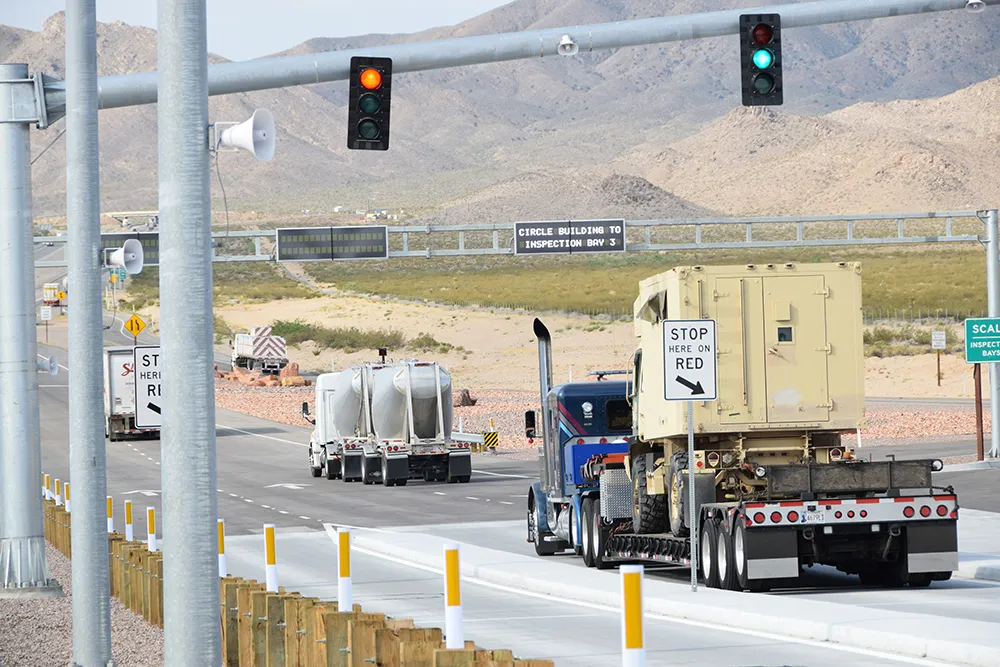Road safety charity Brake and the Freight Transport Association have welcomed the General Medial Council’s strengthened guidelines to all doctors emphasising their duty to disclose information to the Driver and Vehicle Licensing Agency (DVLA) or DVA (Northern Ireland), where the patient has failed to act.
It’s a shift that’s welcomed by road safety charity, Brake, which has long called for greater clarity from the GMC.
Gary Rae, director of communications and campaigns for the charity, said: “This is
November 27, 2015
Read time: 3 mins
Road safety charity 4235 Brake and the 6983 Freight Transport Association have welcomed the General Medial Council’s strengthened guidelines to all doctors emphasising their duty to disclose information to the Driver and Vehicle Licensing Agency (DVLA) or DVA (Northern Ireland), where the patient has failed to act.
It’s a shift that’s welcomed by road safety charity, Brake, which has long called for greater clarity from the GMC.
Gary Rae, director of communications and campaigns for the charity, said: “This is a positive move by the GMC, which will clarify the responsibilities and duties of both doctor and patient. We do recognise that, previously, doctors have been in a difficult position regarding confidentiality of their patients but the guidance makes it clear that this confidentiality is not absolute.”
“I would appeal to all drivers to ensure that they do declare any medical conditions that could prevent them from driving safely to the DVLA/DVA. If they fail to do so, they will pose a continuing risk to themselves and other road users.”
The Freight Transport Association (FTA) says the new guidance is a step in the right direction but more still needs to be done. It says the guidelines will provide some additional reassurance for employers, but employers need to be able to do more to protect themselves.
Following a number of high profile cases where medical conditions were found to have contributed to incidents involving commercial vehicles, FTA has been calling for transport operators to be given access to any medical decision which could indicate that a driver is unfit to drive.
Existing rules mean that it is the driver’s responsibility to notify the DVLA of any relevant medical condition and there are penalties in law, including a fine up to £1,000, should they fail to do so.
Ian Gallagher, FTA’s lead on DVLA, said: “We’re in a ridiculous situation that the employer is completely reliant on the individual to notify them that they have a medical condition. In some cases it’s the employer’s own checks that actually highlight that entitlement has been suspended or revoked on medical grounds. Employers have no right to access medical records. Patients can even veto doctors’ letters if they don’t agree with what’s been written.
“FTA believes that GPs should seriously consider the draft guidance and put what’s written into practice and notify DVLA if they know patients are driving against their advice, but, this doesn’t go far enough. We need a process that involves the employers that provides access to necessary medical information which could ultimately save lives’’.
Niall Dickson, chief executive of the General Medical Council, said: “We are clear that doctors carrying out their duty will not face any sanction – and this new guidance makes clear that we will support those who are faced with these difficult decisions.”
It’s a shift that’s welcomed by road safety charity, Brake, which has long called for greater clarity from the GMC.
Gary Rae, director of communications and campaigns for the charity, said: “This is a positive move by the GMC, which will clarify the responsibilities and duties of both doctor and patient. We do recognise that, previously, doctors have been in a difficult position regarding confidentiality of their patients but the guidance makes it clear that this confidentiality is not absolute.”
“I would appeal to all drivers to ensure that they do declare any medical conditions that could prevent them from driving safely to the DVLA/DVA. If they fail to do so, they will pose a continuing risk to themselves and other road users.”
The Freight Transport Association (FTA) says the new guidance is a step in the right direction but more still needs to be done. It says the guidelines will provide some additional reassurance for employers, but employers need to be able to do more to protect themselves.
Following a number of high profile cases where medical conditions were found to have contributed to incidents involving commercial vehicles, FTA has been calling for transport operators to be given access to any medical decision which could indicate that a driver is unfit to drive.
Existing rules mean that it is the driver’s responsibility to notify the DVLA of any relevant medical condition and there are penalties in law, including a fine up to £1,000, should they fail to do so.
Ian Gallagher, FTA’s lead on DVLA, said: “We’re in a ridiculous situation that the employer is completely reliant on the individual to notify them that they have a medical condition. In some cases it’s the employer’s own checks that actually highlight that entitlement has been suspended or revoked on medical grounds. Employers have no right to access medical records. Patients can even veto doctors’ letters if they don’t agree with what’s been written.
“FTA believes that GPs should seriously consider the draft guidance and put what’s written into practice and notify DVLA if they know patients are driving against their advice, but, this doesn’t go far enough. We need a process that involves the employers that provides access to necessary medical information which could ultimately save lives’’.
Niall Dickson, chief executive of the General Medical Council, said: “We are clear that doctors carrying out their duty will not face any sanction – and this new guidance makes clear that we will support those who are faced with these difficult decisions.”










